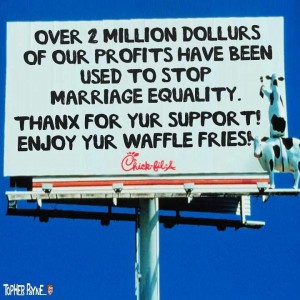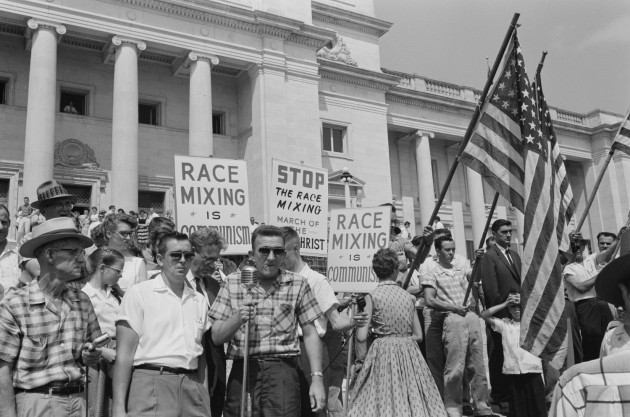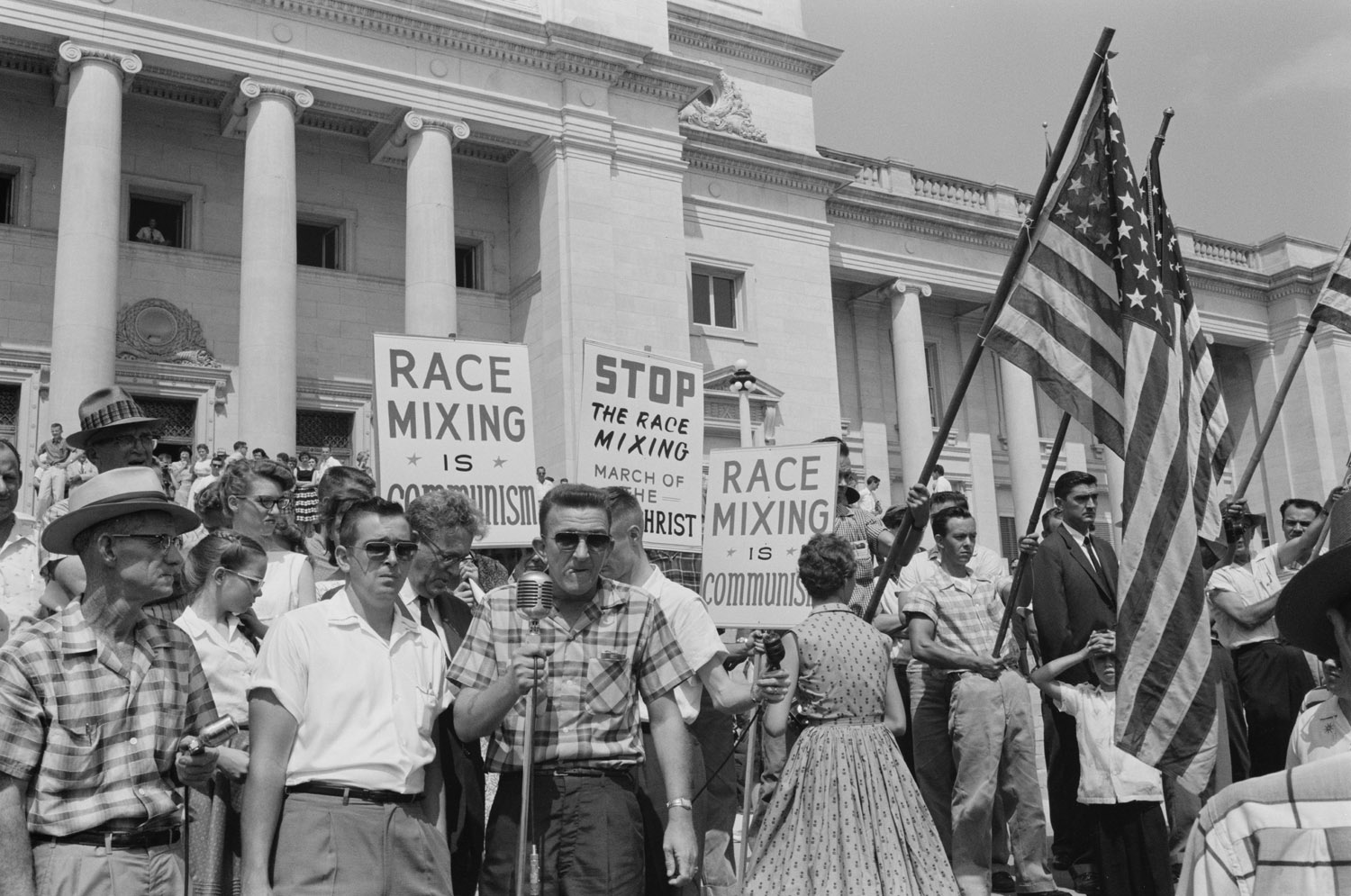In the post this morning about Brands and Brand Equity, I mentioned the Chick-fil-A scandal in passing; particularly how it has experienced a 50% drop in brand perception over the past few weeks as the scandal unfolds. One of the questions was too expansion to deal with in the comments thread so I put it in the Mail Bag template and am responding here.
Joshua, thanks for bringing the 50% drop to my attention. Among my peers, Chick Fil-A has actually skyrocketed in popularity and I have been getting all these e-mails from them about defending Chrisitianity from Satan by eating a chicken sandwich on August 1.
So thanks for bringing the 50% drop to my attention. It made me feel like the liberal academic at an Ivy League school who remarked that she couldn’t possibly understand how Nixon won because all of her friends voted for McGovern.
On a side note, do you think executives of public companies should ever speak out about a personal belief that happens to be unpopular with the general citizenry? Obviously, Chick Fil-A is a privately held company and they can make whatever trade-offs between money and their own moral agenda that they desire, but what about for publicly traded stocks? If I’m the CEO of Procter & Gamble, should I have any business telling people how I feel about the healthcare ruling, abortion, gay rights, the constitutionality of flag-burning, etc.? I’m curious about your opinion because I know Buffett remarked that he didn’t put his citizenship in a blind trust when he became CEO of Berkshire, but I’m wondering how you feel about the advisability of that. After all, CEOs of publicly traded companies are speaking from a platform that will affect the profitability enjoyed by other shareholders who may not share the same views.
FratMan
Framing the Chick-fil-A Brand Equity Problems
Before we get into the broader free speech and economic implications, realize that Chick-fil-A is not being boycotted solely because the founders believe the definition of marriage is one man and one woman. The main transgression that people find so offensive is the revelation that the donations to WinShape, the family foundation, had resulted in more than $2,000,000 being given to virulent anti-gay organizations, some of which are literally listed as hate groups by the Southern Poverty Law Center.
Let’s imagine that you and I live in the same small town. You own a lumber yard and are Catholic, and I own a donut shop and am Baptist. Every day, you come in for coffee and breakfast at my donut shop. Several years later, you find out that I have given a big part of my profits to large anti-Catholic charities that wage war on the Catholic church and sue individual Catholic businesses. You cannot, in good conscience, give me money any longer, regardless of how you feel about the high quality of my coffee and donuts. You might even be personally hurt because my actions have a direct effect on your life. Now, imagine that I start screaming your decision not to patronize my donut shop is because of your “anti-Baptist hatred”. Obviously, your decision to cease entering my donut shop has nothing to do with hating Baptists. It is about being able to live consistent with your values, doing what you think is right, and putting the moral good above your own desire for tasty donuts and hot, fresh, coffee.
That is a better analogy for the Chick-fil-A brand equity collapse over the past three weeks.
 The level of vitriol put out by some of the recipient groups that received donations from Chick-fil-A is on par with neo-Nazi skinhead organizations, in my opinion. I am astonished at some of the actions, once I began looking into the literature myself.
The level of vitriol put out by some of the recipient groups that received donations from Chick-fil-A is on par with neo-Nazi skinhead organizations, in my opinion. I am astonished at some of the actions, once I began looking into the literature myself.
- One released publications essentially implying that gay people were more likely to rape and molest children; that their “real” aim wasn’t to win marriage equality so they could have equal inheritance rights or Social Security benefits (which they pay for in taxes), but so they could lower the age of consent to seduce teenagers.
- One group lobbied on Capitol Hill to kill bills such as ENDA, which would allow owners to only consider job performance in firing decisions, making it illegal to fire someone solely because of their sexual orientation.
- To try and keep gay families from adopting the foster kids they cared for, these people engage in behavior I consider deeply intellectually dishonest such as founding a tiny organization and giving it a medical sounding name, “The American College of Pediatrics”, to issue papers about how gay families aren’t good for children. It’s completely bunk science and they know most people won’t read it. They also chose their name carefully, realizing the average American is too mis-informed to realize they aren’t the real pediatrics association.
- Another group, Exodus International, strives to help gay men and women (or “same-sex attracted” people, as they call them) to be celibate for life or marry someone of the opposite sex to conform with “God’s plan”. Up until a few years ago, one of the affiliate groups ran a residential program in which Christian parents would ship off their gay teenage kids against their will to a therapy program, sometimes lasting months, to make these kids “realize” their straightness. I am of the personal opinion that some of these groups bear at least partial responsibility for the kids who kills themselves, resulting in the need for things such as the Trevor Project. It’s so bizarre that it resulted in major media coverage and even a full-length documentary film, in one case.
I’ve come across many of these groups peripherally due to the donations of the Kennon & Green Foundation, where there name and activities would pop up over the years. Looking at the behavior of these organizations, the Southern Poverty Law Center was correct for listing them as hate groups. These are not folks who have a mere difference of opinion or doctrine position.
The Absurd Idea That the Protests Are Somehow Anti-Christian
Bluntly, it is beyond absurd for someone to believe that protesting or boycotting Chick-fil-A is anti-Christian or driven by anti-Christian animus. Regardless of which side of the issue or marriage someone falls, rationality tells us that not all Christians disapprove of marriage equality. In fact, looking at the Pew Research figures, a major percentage of young Christians are all for it, cheering from the sidelines with pom pons and megaphones and the older generation looks on aghast.

Chick-fil-A is not being subjected to any religious liberty issues. It took a social position that many find offensive, and in a free market economy, individual consumers are welcome to choose how they want to allocate their dollars. This is one of the reasons our economic system works so well.
If many young Christians support marriage equality, then marriage equality cannot, by definition, be anti-Christian. A parallel: The fact Catholics and protestants have different beliefs on the transubstantiation of the bread and wine during communion doesn’t make anti- or pro-transubstantiation folks “anti-Christian”. They have a deeply held difference in doctrinal belief. You don’t see Catholics and protestants waging war on each other screaming, “You aren’t a real Christian” … anymore. The whole reformation and wars in England got that out of the collective system.
That said, I’m much more interested in the freedom of speech question you posed, especially as to how it integrates with economics in the United States. Let’s get to the good stuff!
The Religious Liberty Argument Is a Canard
The United States has one of the longest, and best, traditions of religious and speech freedoms thanks to our Bill of Rights. In fact, the founders thought it so important, that those two rights are listed as priority one in the first amendment. The exact text reads:
Congress shall make no law respecting an establishment of religion, or prohibiting the free exercise thereof; or abridging the freedom of speech, or of the press; or the right of the people peaceably to assemble, and to petition the Government for a redress of grievances.
The first amendment gives a citizen of the United States a guarantee that the government does not have the authority to limit speech. With few exceptions (e.g., the famous ‘you can’t yell fire in a theater’ precedent), you can say whatever you want, provided you aren’t disturbing the peace or being disruptive. Generally speaking, subject to private property considerations, you can print what you like, post what you like, comment where you like, and engage in intense debate, regardless of how offensive, unpopular, or controversial that speech may be.
[mainbodyad]Likewise, religious liberty means you can believe whatever you want, and live according to those beliefs within very broad guidelines, subject to the limitation that you cannot force others to abide by your own convictions (e.g., your right to swing your fist ends the moment it makes contact with my face).
Nowhere are you given a promise, or a right, that you are immune from the cultural and social ramifications of how you choose to use the freedom of speech or religion. All of our choices have consequences. I’ve said it many times on this site: If you eat more calories than you expend, you put on excess weight. If you spend more than you earn, you go into debt or file for bankruptcy. If you neglect your family, at some point they want nothing to do with you. A significant part of being an adult is accepting that basic truism, realizing that you, or more specifically, your choices and actions, are both the problem and the solution to most issues you face. These dual categories of action and behavior are no different.
A Case Study of the Social Ramifications of Free Speech
To understand this distinction, a case study would be helpful. Let’s go back 55 years in United States history. President Eisenhower is in the White House. Warren Buffett is 27 years old and has been running his investment partnerships for two years. Legendary actor Humphrey Bogart passed away of throat cancer. Dr. Suess publishes The Cat in the Hat for the first time. The Tropicana opened in Las Vegas. John Lennon and Paul McCartney meet three years before they form The Beatles. The Soviet Union launched Sputnik 2, along with the first animal in space. Elvis Presley dominates the box office with Jailhouse Rock. The Dow Jones Industrial Average includes stocks such as United Aircraft, Standard Oil of New Jersey, Standard Oil of California, Sears Roebuck & Company, National Steel, National Distillers, Johns-Manville, International Nickel, Eastman Kodak, American Tobacco, and Chrysler.
That same year, the Little Rock Nine began attending Little Rock Central High School as a result of the Brown v. Board of Education decision three years prior, which declared separate was not equal. Massive protests followed in the south. The national guard blocked the entrance of the school, resulting in the President sending Federal troops to their aid to escort the students to class. The scene outside looked like this:

As social values change in a society over time, things that were at once in the majority can become deeply offensive. Consider that the people in this photograph were in the majority of their community. They faced no social stigma or consequences for their beliefs. Today, they would be shunned by friends and family.
Everyone in that crowd had a constitutional right to express their opinion. The government could not shut them down, nor imprison them for their heartfelt beliefs. Their opinion happened to be the majority in the community at the time. They did not face social stigma or experience discomfort. Many of those people based their beliefs on their Christian faith, citing the Bible, in which slavery is perfectly permissible and strictly governed.
Now fast forward to the present. You could go down to that same location this very moment and organize a protest with the exact same signs and the exact same beliefs. The government cannot stop you. It is your right to free speech. It is your right to believe that the Bible does not forbid the ownership of slaves, and demands segregation. However, the social and cultural consequences of that speech are going to be very different for you because the moral contract in society has broadened to include the idea that all races are inherently equal and that people must be judged as individuals. You are going to lose friends. You are going to be called a bigot. You might have trouble finding or retaining employment because people do not want to associate with you.
Would your friends, who no longer wished to speak to you, be declaring war on your Christianity? How is such a thing even possible if they were Christians themselves? Do you have a right to have other accept your opinion as valid, even if they don’t believe it to be so? Since when? Who promised this right?
Personally, I think it is baffling how a major majority can scream, without any sense of irony, that they are being oppressed because their right to oppress a minority is being taken away from them.
How the Situation Parallels the Chick-fil-A Scandal and What the Cathy Family Should Have Learned from the King & Spalding Meltdown
The desegregation protests are a socio-demographic parallel to the Chick-fil-A scandal because you have a belief that was at one time mainstream (e.g., disapproval of gay people compared to disapproval of blacks) that is now unacceptable to a significant portion of the population because people got to know the members of a group.

When famed Atlanta-based law firm King & Spalding decided to take on the House of Representatives as a client before the Supreme Court, defending a challenge to the Defense of Marriage Act, a huge portion of the firm tendered, or threatened to tender, their resignation in the first 24 hours, leading to a reported internal meltdown. Also rumored, Georgia’s grand boss of business, Coca-Cola, made it abundantly clear to the law firm that it would not associate with bigots, nor would it be so generous with the billions of dollars in legal fees it generates. Opposing marriage rights for gay people is now as toxic as being racist or hating Jews. The topic of marriage equality has moved beyond reasonable disagreement. This is even true in the board rooms of the deep South.
The basic reality is that the world has changed on this particular matter and I believe Dan Cathy probably thought Chick-fil-A was immune to those forces. Perhaps he lives in an echo-chamber of like-minded people so he truly didn’t understand how horrible his actions were. Doubt it? Look at the utter meltdown of legendary law firm King & Spalding. One of the best lawyers of his generation, Paul Clements, agreed to take the House of Representatives as a client to defend against a constitutional challenge in the Supreme Court to the Defense of Marriage Act. Within 24 hours, a huge portion of the entire firm had threatened to, or actually tendered, resignation letters. This was not a small thing. You had a major part of the workforce, many of whom were earning six-figures or more, storming out of the office, giving up their salary and employment in the aftermath of the worst recession since the Great Depression, with no guarantee of alternative sources of paychecks. Working with people who were against marriage equality was that offensive to them.
Then, according to sources referenced in the news stories, Coca-Cola, the firm’s most important client, directly intervened. The rumors are that the higher ups in Coke effectively told the partners of King & Spalding, who were watching their people walk out the door in protest, that Coca-Cola and the billions of dollars in legal fees it generates, would not work with bigots. The choice? Drop the House of Representatives and support marriage equality, or find another client. The result? Congress lost its law firm and Paul Clements had to leave the partnership to start his own practice.
On the day the Chick-fil-A scandal broke, I saw people on Facebook (I’m no longer active, but many people around me are when I bother to go into the office), literally end real-life, physical-world friendships that had lasted years over posts supporting Chick-fil-A. One married woman wrote to another Christian couple, to paraphrase, “My husband and I have decided we no longer want to associate with bigots. To allow you to remain in our lives when you display such offensive beliefs isn’t acceptable to us. Friendship terminated.” It was stunning because it wasn’t an isolated case. There was a consistent pattern. What was interesting to me, from a sociological perspective, was the fact that so many of the pro-Chick-fil-A people genuinely, honestly, and in good faith had no idea what they had done wrong or how offensive they were. It reminds you of that crazy 95-year-old aunt your in-laws have who you find out is a secret racist and she doesn’t understand why people don’t see her point of view.
[mainbodyad]Marriage equality is at the point that there is no longer an “agree to disagree” attitude, at least in the upper levels of the socio-economic hierarchy, just as no decent person would “agree to disagree” with a racist or an anti-Semite. I’m sure it is still different in the lower income and lower educated ranks, as evidenced by the Pew Research studies, since changes tend to lag in those demographics. Other businesses now don’t want to work with Chick-fil-A. A significant portion of society doesn’t want to patronize the franchise locations because doing is a direct affront to the well-being of their gay friends and family members. This is the United States now. In fact, it is most of Western Civilization. I mean, Target, our second largest discount department store chain with a presence in nearly all major communities, now has same-sex wedding registry advertisements running. This is about as white-bread-and-butter as you can get.
There is no doubt the founders of Chick-fil-A have a “right” to have their beliefs but their beliefs are now offensive to much of society, myself included. The folks with whom I work, as well as several of my family members, have made it abundantly clear that we will never eat at Chick-fil-A again, which is sad because I enjoy the waffle fries and cole slaw. From our office alone, the local franchise lost tens of thousands of dollars in sales over the coming years.
The Question for Business Managers About Personal Politics
Here is where it gets tricky. A man or woman doesn’t leave his personal beliefs at the door when he accepts the corner office. On the other hand, the owners have a right to fire someone if they are engaging in action that lowers profitability. Therefore, it is a balancing act. With someone like Warren Buffett, he is the controlling stockholder. You know going in that you are, for all intents and purposes, a minority partner who accepts things as they are. If you don’t like it, go somewhere else. The same could be said of a family business like Chick-fil-A. When you get into public companies that do not have a controlling stockholder? I think the Board of Directors would be doing its duty to put an end to it because the point the managers become a distraction bigger than the business itself, they are disruptive.
Part of the brand equity destruction at Chick-fil-A, in my opinion, is the horrible PR disaster that ensued. The company allegedly created a fake Facebook account and used a stock photo to respond to criticism and make it appear as if people supported them, leading to an entire Colbert segment:
Side note: My new favorite phrase is “lesbian fantasy snack”. I will never think of the KFC double down the same again.
Then, they allegedly lied about the fact that the Jim Hansen company pulled the Muppet toys because they didn’t want their brand assets associated with discriminatory beliefs, saying that the Muppets hadn’t ‘really’ dropped them, that they (Chick-fil-A) had recalled the Muppet toys for safety reasons. Then, the head of PR died of a heart attack. Now, the top Google search suggestions for the brand include things like “Chick-fil-A anti-gay”. That isn’t good for your business. The fact the allegedly lied on multiple occasions in the aftermath of the PR challenge took away a significant amount of creditability. It was terribly handled. The focus should be on the food. I’m not sure they will be able to undo the long-term damage to the brand. I still know people who haven’t eaten at a Jack-in-the-Box since the 1990’s because of the horrific food poisoning deaths that unfolded on the news.
If I were on the Board of a public company and this were happening, I’d probably give the executive a chance to resign. Cathy is lucky his firm is privately held. In the end, if his family is willing to accept the lower brand equity and significant social disapproval, as the total private owners, that is their economic trade-off to make. Personally, I think it is a foolish one, but it is their business.


